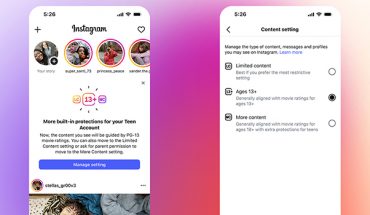Canadian firm Epilogue has announced its latest estate planning solution called the ‘Social Media Will,’ which is a free, online service developed to help people document their final wishes for their social media accounts and online presence.
Explained Daniel Goldgut, Co-founder and CEO, Epilogue, “We created the Social Media Will to help people record how they want their accounts handled after they pass away. This is a free service that generates a document that can be signed and kept with your Will and other estate planning documents.”
Epilogue also assists people complete their estate planning online.

Daniel Goldgut, Co-founder and CEO, Epilogue
“I founded Epilogue with my co-founder, Arin Klug, about two years ago. We left our jobs as tax and estate lawyers to build Epilogue with the goal of democratizing estate planning for Canadians. We offer affordable and high-quality Wills and Powers of Attorney people can complete online in about 20 minutes.” Goldgut added, “More recently, we noticed that traditional estate planning doesn’t do a thorough enough job of protecting digital identities, which is increasingly problematic this digital age. So, we developed the Social Media Will.”
“The Social Media Will is a first-of-its-kind first fully digital solution for people to document their social media wishes,” said Goldgut. “[All] someone has to do is answer some questions about their social media presence, specify their wishes, generate their document, and then print it out and/or share it with their loved ones. The whole process can be completed in about 10 minutes.”
Social Platform Options
Currently, the Social Media Will service focuses on Facebook, Instagram, Twitter, Linkedin and Google.
Goldgut remarked, “Right now, there are no industry standards in terms of how social media service providers manage the personal accounts of the deceased.”

“Some platforms, like Google and Facebook, offer users pre-planning options. For example, on Facebook, someone can choose (while they’re alive) whether they want their account deleted or memorialized when they die. They can also select someone who is authorized to carry out their wishes, called a ‘Legacy Contact.’”
“Other platforms, like Twitter,” Goldgut added, “don’t have any legacy planning tools or features at all. In these instances, the only option is for a loved one to request the deactivation of an account of a deceased person. This typically involves filling out a form and providing proof of death and proof that you have the authority to act on behalf of the person who passed away.
“LinkedIn recently released a new feature that allows someone to memorialize the account of someone after they pass away,” said Goldgut. “This is certainly a step in the right direction! However, what would be even better is if LinkedIn could allow account holders to select whether or not they’d like to have their account memorialized while they’re still alive.”
 “Instagram has something similar to LinkedIn,” explained Goldgut. “And they recently released a new feature that would let people add a ‘remembering’ banner to someone’s account who passed away from COVID-19. If a friend or family member wants to remove someone’s account or memorialize it, they just need to fill out a form [on Instagram.] Again, this is a step in the right direction, but they could take it further by letting the living account holder decide how they would like their accounts handled after they pass, rather than make their loved ones make such a difficult decision during an already stressful time.”
“Instagram has something similar to LinkedIn,” explained Goldgut. “And they recently released a new feature that would let people add a ‘remembering’ banner to someone’s account who passed away from COVID-19. If a friend or family member wants to remove someone’s account or memorialize it, they just need to fill out a form [on Instagram.] Again, this is a step in the right direction, but they could take it further by letting the living account holder decide how they would like their accounts handled after they pass, rather than make their loved ones make such a difficult decision during an already stressful time.”
Summed up Goldgut, “As far as other platforms go, they pretty much all have the option for someone to request the deactivation of the account. But as far as I’m aware, no other social media platforms offer account holder pre-planning tools for death and/or incapacity or provide memorialization options for the family/executor after the fact.”
Epilogue saw this gap in estate planning, and Goldgut remarked, “After all, our digital identities are our identities to some extent. That’s why we created the Social Media Will.”
Tips to Manage Your Social Media Content
Goldgut suggests, “For someone who wishes to ‘save’ these memories either for private use or to share with friends and family, there are a few things you can do:
- You can make a habit of downloading and backing up any content that lives on these platforms;
- You can make use of the pre-planning tools that are available and select to have your accounts memorialized rather than deleted; and,
- You can let your loved ones know (in writing preferably) that on platforms that don’t have pre-planning tools available, you wish for your accounts to be memorialized instead of deleted.”
Who has already put social media wills and digital asset plans in place?
“So far, the people who seem most interested and excited about the Social Media Will are heavy users, typically Millennial or Gen Z,” replied Goldgut.
“What most people don’t realize is that, even if you just have an email account or only use LinkedIn for business purposes, you still have an online presence that could outlive you,” explained Goldgut.
“It’s so important for everyone, regardless of how many (or few) social media accounts, to have a plan in place for what they want to have happen to those accounts when they are no longer around. Ask yourself, what profiles do you want to online forever? And what do you want to remain visible only for your friends and family to see when you’re gone. Nothing? Everything?”
Goldgut cautioned, “If you don’t document your wishes for your social media accounts and online presence, it makes it very challenging for your executor to know what you would have wanted to have done.”
 The Social Media Will was developed in consultation with Sharon Hartung, a Canadian specialist in estate planning for digital assets and author of Your Digital Undertaker – Exploring Death in the Digital Age in Canada.
The Social Media Will was developed in consultation with Sharon Hartung, a Canadian specialist in estate planning for digital assets and author of Your Digital Undertaker – Exploring Death in the Digital Age in Canada.
Related:
Woman-led Online Company Disrupts Cremation Services Business
Frontline Healthcare Workers Receive Help with Wills and End-of-Life Plans



